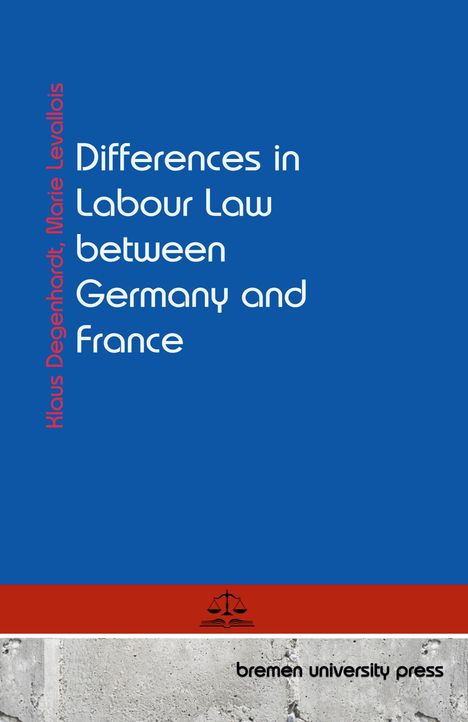Klaus Degenhardt: Differences in Labour Law between Germany and France, Kartoniert / Broschiert
Differences in Labour Law between Germany and France
(soweit verfügbar beim Lieferanten)
- Verlag:
- Bremen University Press, 09/2024
- Einband:
- Kartoniert / Broschiert, Paperback
- Sprache:
- Englisch
- ISBN-13:
- 9783689047887
- Artikelnummer:
- 11956882
- Umfang:
- 208 Seiten
- Gewicht:
- 301 g
- Maße:
- 216 x 140 mm
- Stärke:
- 15 mm
- Erscheinungstermin:
- 2.9.2024
- Hinweis
-
Achtung: Artikel ist nicht in deutscher Sprache!
Klappentext
There are significant differences between labour law in Germany and France that affect both employees and employers. In Germany, labour law is strongly influenced by the principles of the welfare state. It places particular emphasis on the protection of employees, especially through comprehensive co-determination rights of works councils and strict regulation of dismissals. The Dismissal Protection Act ensures that employees can only be dismissed under certain conditions, which guarantees a high level of job security. In addition, collective labour agreements are widespread in Germany and offer additional protection mechanisms. In France, on the other hand, labour law is more centralised and state-controlled. The ¿Code du Travail¿ regulates many aspects of working life and provides for strict regulations in some areas, such as working hours and the minimum wage. French labour law is characterised by a high degree of state intervention, which is reflected in the traditionally high importance of trade unions and industrial action. The regulations on the dismissal of employees are also strict, but more flexible compared to Germany, especially after the labour law reforms under President Macron. These differences in labour law reflect the different historical, social and political developments in the two countries. While the principle of social partnership and decentralisation is paramount in Germany, French labour law is characterised by strong state regulation and centralism. An understanding of these differences is essential for companies and professionals operating in both countries in order to correctly fulfil the respective labour law requirements and avoid conflicts.
Biografie (Klaus Degenhardt)
Klaus Degenhardt (49) ist deutscher Volljurist und Rechtsanwalt und arbeitet als Syndikus. Er verfügt über langjährige Erfahrungen im deutschen und internationalen Gesellschaftsrecht und hat unter anderem die europarechtliche Entwicklung der Niederlassungsfreiheit von Unternehmen publizistisch begleitet.Anmerkungen:
Bitte beachten Sie, dass auch wir der Preisbindung unterliegen und kurzfristige Preiserhöhungen oder -senkungen an Sie weitergeben müssen.
Mehr von Klaus Degenhardt
-
Klaus DegenhardtSetting Up a Company in EuropeBuchAktueller Preis: EUR 29,90
-
Klaus DegenhardtTaxation of Cryptocurrencies in International Legal SystemsBuchAktueller Preis: EUR 27,00
-
Klaus DegenhardtBritish Financial Market Regulation in the Age of Brexit, ESG, and DigitalizationBuchAktueller Preis: EUR 24,90




